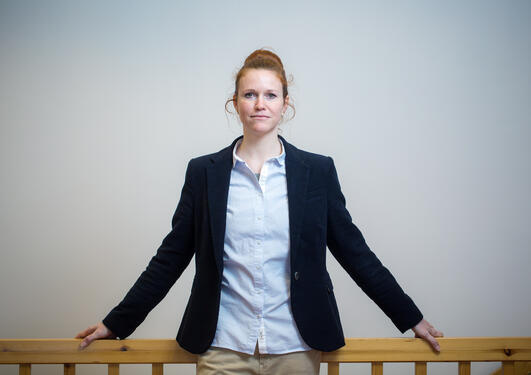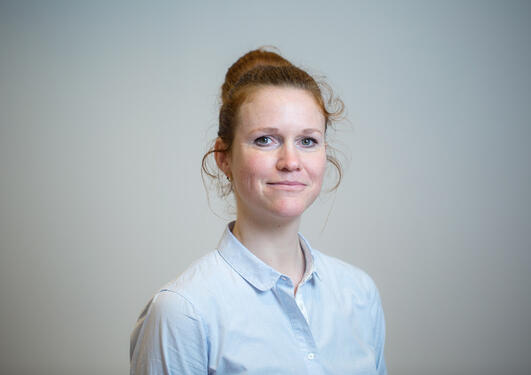The Politics of Inequality. How Representative Democracy Functions in Europe

Main content
This project deals with some of the most pressing issues facing democracies today: political inequality and the lack of representation. It investigates the state of representative democracy by studying citizen-state relations. More specifically, the project focuses on representation (do citizens get what they want?) and political equality (do people get what they want equally?). Political equality is a fundamental condition for the existence of democracy, and representation structures the way democracies function. Research conducted within the project will further our understanding of how representative democracy works, will precisely diagnose its problems, and will identify ways of improving it.
The project The Politics of Inequality. How Representative Democracy (Mal-) Functions in Europe, is funded by the Trond Mohn Stiftelse and University of Bergen.
About the project
This project deals with some of the most pressing issues facing democracies today: political inequality and the lack of representation. It investigates the state of representative democracy by studying citizen-state relations. More specifically, the project focuses on representation (do citizens get what they want?) and political equality (do people get what they want equally?). Political equality is a fundamental condition for the existence of democracy, and representation structures the way democracies function. Research conducted within the project will further our understanding of how representative democracy works, will precisely diagnose its problems, and will identify ways of improving it.
It is particularly relevant to investigate this now: over the past years many European democracies have seen their participation, and political trust rates decline. International commitments have put governments under increased pressure to trade-off those commitments and public preferences. Moreover, the recent economic crisis has highlighted, and worsened, economic and gender inequalities. The project team explicitly studies whether these inequalities have translated in political inequalities, and will explain why this is so and how this dire situation can be addressed.
To deal with these issues, three approaches are used. First, the project examines representation and equality in Norway, a country that still has high levels of trust and which was less hit by the economic crisis than other European countries. This is achieved through surveys of Norwegian representatives (at all levels of government) and citizens. We investigate 1) the extent to which the preferences of parliamentarians and citizens align, 2) the extent to which this congruence results in public policies, 3) what inequalities exist in this relationship, and what causes them, and 4) how representatives perceive their role as representative. Second, temporal data from European countries are pooled together to 1) match people’s preferences to public policies (responsiveness), 2) identify whether responsiveness is different for men/women, and the rich/poor, and 3) to identify the structural causes of (unequal) responsiveness (e.g. veto points, electoral and party systems). Third, the team will uncover the sources of legitimacy within the democratic process, and find ways of improving it. This approach advances the collection of data on people’s preferences and ideas on what democracy should look like, and to what extent they deem the representative process legitimate. Moreover, in order to disentangle which aspects of representation promote the popular legitimacy of decisions, survey experiments are included.
The project The Politics of Inequality. How Representative Democracy (Mal-) Functions in Europe, is funded by the Trond Mohn Stiftelse and University of Bergen.
Workshops and Conferences
The Roots of Political Inequality and the Working of Democratic Representation
October 2019
The working of democracy hinges on the well-functioning of a form of political representation, and well as a commitment to political inequality. And because democratic politics practically function through the mechanism of political representation, this phenomenon has been studied extensively over the last decades. While numerous studies find that representation works fairly well—representatives’ and citizens’ overall preferences are generally quite congruent, and people tend to overall get what they want politically—there have been a number of scholars that reported some alarming findings. For one, representatives tend to respond more to some citizens when being contacted by them. For another, policies made by legislators tend to be more in line with some people rather than with others. Moreover, political representatives do not always reflect citizen preferences equally, nor do they reflect personal and socio-economic characteristics among the population particularly well.
The overall conclusion is that politics appears more unequal than one would expect given the democratic principle of political equality. The result is that not everyone is equally likely to get what they want. Most notably, those who are poorer, women, or of a (traditionally) minority background tend to be relatively under-represented. The papers in this workshop will deal with the topic of political representation and political equality, examining the ways that representation works and how political equality might be achieved. With that, it aims to contribute to both the academic and societal debates on how to improve the functioning of our democracy. It does so by offering a better understanding of how political representation works and why some people are more likely to get what they want.
The complete workshop program can be found here.
Workshop at Harvard University on ‘Political Inequality, and How Representative Democracy Functions’
June 2018
Democracy and its defining characteristics have long been a subject of study among social scientists. There is good reason for this: democratic systems bring with them a number of advantages, not least an improvement in overall human wellbeing (Warren, 2002). Indeed, the basic principles of democracy suggest that all or almost all citizens are to be—more or less—equally included in the decisions that govern them. Dahl (1971, 1998) argues that democracy implies that governments are representative of citizens and policies are responsive to them. Moreover, and perhaps more crucial for the concept of democracy even, citizens should be political equals, i.e., they should have equal chances and opportunities to have a say in the decisions that govern them.
This workshop deals with two issues fundamental to the nature and functioning of democracy: representation and political equality. In the past half-century, high-income, established democracies have seen numerous changes relevant to representation and political equality. These include decreasing electoral participation and increasing distrust in political institutions and anti-immigrant (and anti-EU) sentiments. Moreover, international commitments and the recent economic crisis have imposed constraints on governments that affect the kinds of policies they can pursue. Economic inequality has also increased in many established democracies. Against this backdrop, this workshop brings together scholars who aim to analyze two elements vital to democracy: on the one hand, representation (citizen-to-representative congruence/responsiveness; policy congruence/responsiveness; and perhaps even ‘responsibility’); and on the other hand, political equality (equality in representation).
The complete workshop program can be found here.
Internal UiB workshop on ‘The Politics of Inequality’
January 17, 2018
As part of the project ‘The Politics of Inequality’, we organized a largely internal workshop including people working directly on the project, as well as scholars that have a close relationship to the topic. The idea would was to get together to present and discuss research and research plans, so that we learn more about what we work on. Often, we know each other and broadly know what we work on. But it is very useful to sometimes take an extra moment to learn more about who does what and how more precisely. This allows us to see more clearly where the possibilities for collaboration are, and it makes it much easier for us to start working together—also with people that are not from the same department.
The workshop was very fruitful, and we discussed various topics that are diverse but in many ways relevantly related, including; the role of money in politics, gender and age equality in politics, the fairness of certain inequalities, differences between and within different levels of government, as well as inequalities on the internet. Participating researchers have a lot of overlap in the things they study, and foundations for common projects have been laid on the basis of the workshop. The workshop included researchers, postdocs, professors, and PhD students from the department of Comparative Politics, the department of Public Administration, the department of Philosophy, and the Uni Research Rokkan center. The general program can be found here.
The complete workshop program can be found here.

